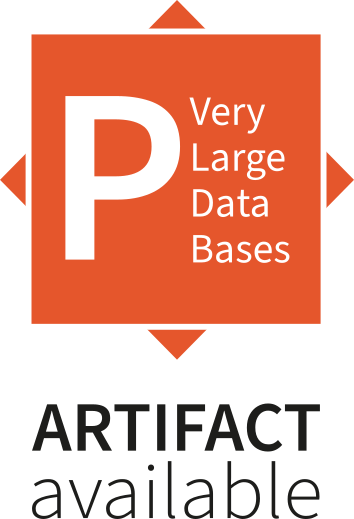go back
go back
Volume 18, No. 11
Turbocharging Vector Databases using Modern SSDs
Abstract
Efficient and scalable vector search is critical for modern AI applications, particularly in retrieval-augmented generation (RAG) and large-scale semantic search. However, disk-based vector databases often suffer from significant I/O bottlenecks due to suboptimal cache hit ratios and inefficient use of modern SSD architectures. In this work, we introduce a suite of optimizations to enhance the performance of disk-resident Approximate Nearest Neighbor (ANN) indices, specifically focusing on hierarchical graph-based indexing such as HNSW. Our approach leverages three key strategies: (1) Parallel I/O leveraging io_uring to exploit SSD concurrency and reduce retrieval latency, (2) Spatially-aware insertion reordering to improve cache efficiency by dynamically adjusting insert execution order based on locality, and (3) Locality-preserving colocation to restructure index layouts and minimize costly random disk accesses. We implement these techniques within pgvector , a PostgreSQL extension for vector search, and conduct extensive evaluations using real-world datasets. Our optimizations yield up to 11.1 × improvement in query throughput, a 3.23 × increase in cache hit ratio, and a 98.4% reduction in index build time. Moreover, our findings underscore the importance of SSD-aware indexing strategies for scalable vector retrieval. By integrating hardware-aware I/O optimizations with intelligent data placement techniques, this work paves the way for more efficient, high-performance disk-based vector search engines that could fully leverage modern SSD’s high parallelism.
PVLDB is part of the VLDB Endowment Inc.
Privacy Policy